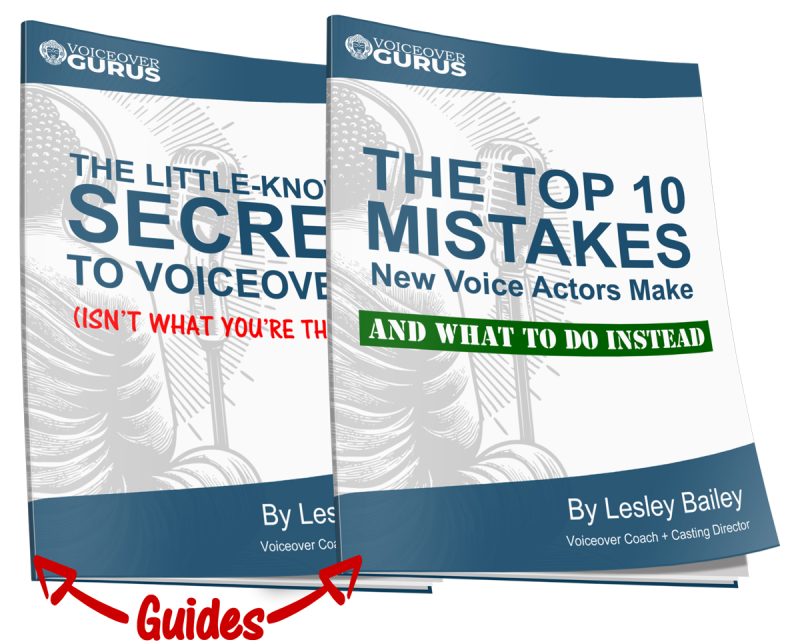There is constant evidence in voice acting that a person’s “history” is getting in the way. (These are the in-trained actors, of course). A believable voice over performance requires a clearing of sorts to happen, which can be done in many ways, but must be done. One way is therapy. Another is suspension of disbelief. And the list goes on. Take the person who lacks self confidence, who doesn’t speak up, who feels (and makes them-self) small, and therefore sounds that way. In commercials in particular this winds up being a huge problem given that the default direction given to the actor is usually friendly and confident. (Because what producer or writer would want the actor to sound mean and insecure?!). Then there’s the actor, or person rather, that overcompensates for that insecurity by virtually shouting and therefore nudging out any emotional nuances or keyword emphasis that should be present. Listen to ME! he says, while breaking your eardrums. This is almost everyone, everywhere, in the whole world. We all have stuff. Unfortunately, if you’re doing voice acting it’ll show up as a bit more transparent than if you did accounting for a living. So, back to that clearing we all need to be for the voiceover magic to happen. There’s a great article in Mindful magazine that discusses the connection between acting and meditation (of all combinations, right?!) with Homeland actor Michael O’Keefe. He really makes the connection between meditation allowing for a person to truly understand the self and how that plays into crafting a character. He talks about the classic technique of substituting one’s personal/emotional experience for that of their character’s, and how meditation allows for a lot of those memories to come up. On an off-topic, but still voiceover related, he also mentions how anyone who can read well can imagine how a scene should be played. This has been a topic in this blog many times over, and it’s always been from the perspective of teaching script-analysis technique. A nice reminder, however, would be that you already know how to understand a script. You do it every single time you read a book or an article. A pamphlet. A comic book. Anything. You are digesting an emotional undertone. You are following plot. You are absorbing what’s really important – the meat of the story. O’Keefe knows that good writing sparks the imagination and that you can then imagine the characters, the setting, and the plot. He believes that to bring all this to life with acting requires one to be organized above all else. To bring passion to a scene isn’t enough. It must be rooted firmly in the arc of the story so that it doesn’t fall prey to coming across as a generalized feeling. He names specificity, fluidity, and precise calculation as the foundation to support that “spontaneity” of the actor in a scene. Interestingly, Michael also says that the mindfulness practice that can lead to self-observation and inquiry leads to understanding oneself better, and ultimately to the ability to then forget one’s self. Meditation means paying supreme attention, and then letting it go. The most enlightened part of the article comes from when O’Keefe discusses how this practice of self-engagement informs is about ourselves and the world around us, and how we can hopefully then begin to realize that nothing separates us from others, or even the entire universe, except for how we engage with ourselves. Wanna try it voiceover people?
Ok, here’s a basic practice for bringing meditation into the realm of your voice acting craft. Keep in mind there can be many techniques associated with actual meditation, and we aren’t getting into that here. Try here for basic primer on meditation.
1. Meditate for at least 15 minutes.
2. Check in with yourself. Who are you? What defines that for you? Contemplate how you feel about where you are currently in your life.
3. Meditate for 5 minutes more.
4. Review your contemplation from earlier. Ask yourself if you ARE those things and if there’s
more. Allow for the possibility that it’s all a story, and it only weighs as much as you allow it to.
5. See past this story and really experience yourself as something more fluid and transparent, inhabiting a space that is really nowhere special and always just right here right now.
6. Let that really marinate for a while. This is what some may label as your true self. It doesn’t require maintenance of any sort. It’s nothing. It’s no thing. As an actor, to become aware of who liquid this self is means you can be anyone, anywhere, anytime. You can be in the flow of self. The possibilities are endless, really.
How to do a voiceOMver, aka How meditation helps voice acting
 Hi! I’m Lesley Bailey. I’m an award-winning Casting Director, Voiceover Coach, Demo Producer, and Consultant with over 30 years “in the trenches”. I love helping voice actors bring scripts to life with authenticity and confidence.
Hi! I’m Lesley Bailey. I’m an award-winning Casting Director, Voiceover Coach, Demo Producer, and Consultant with over 30 years “in the trenches”. I love helping voice actors bring scripts to life with authenticity and confidence.
Ready to jumpstart your voiceover career? Click/tap here to book a Voiceover Jumpstart Session (only $89)

